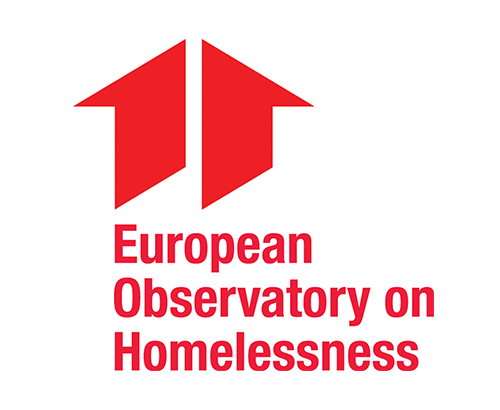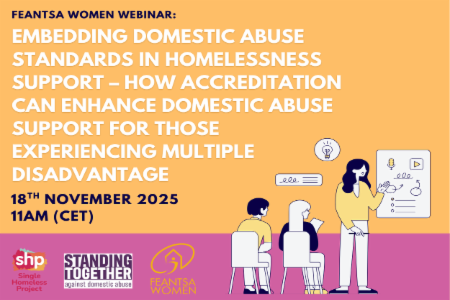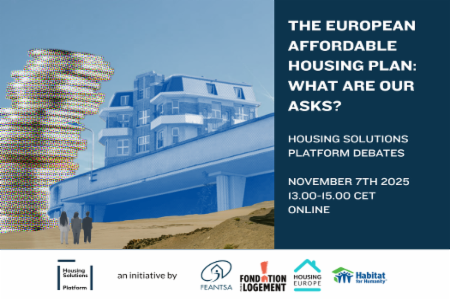With the launch of the 10th edition of the Overview of Housing Exclusion in Europe, FEANTSA and la Fondation pour le Logement des Défavorisés (formerly Abbé Pierre) warn of the scale of the housing crisis in Europe. As the European Commission prepares to present its Affordable Housing Plan, our organisations, following research conducted across numerous European countries, highlight the dangers of the shift from 'social housing' to 'affordable housing' models that depend on financial markets. Behind this appealing expression lies the risk of further excluding the lowest-income households, already hit hard by skyrocketing rents and property prices.
A housing crisis hitting low-income households
According to Eurostat, in 2024, European households living below the poverty line spent 37% of their income on housing, compared to 19% for all households.
That same year, 29% of EU households reported difficulties in making ends meet, compared to 22% in 2023 - a 32% increase.
According to the latest Eurobarometer (Jan-Feb 2025), concern about housing costs is growing throughout Europe: 61% of respondents in the EU reported being worried about no longer being able to pay their rent or mortgage, with over a quarter (27%) describing this concern as 'strong'.
Warning signs across Europe
In France, 2.8 million social housing applications are pending. Yet the proportion of very low-income housing (PLAI) continues to decline, while intermediate housing (LLI) expands. According to a 2020 report by the National Housing Control Authority (Ancols), nearly 90% of social housing applicants are too poor to qualify for intermediate housing.
In the United Kingdom, since 2011, so-called 'affordable' rents have been set at 80% of market rates, around 60% higher than traditional social rents in London. Subject to financial market pressures, housing associations, which manage 45% of the social housing stock, are increasingly failing to reach low-income households. A similar pattern is seen in Milan, where between 2010 and 2023, nearly 70% of newly built “social” homes were in fact intended for sale or rented at prices out of reach for the poorest households.
For an ambitious housing policy that leaves no one behind
On 10 September, President Von der Leyen rightly described the housing crisis affecting the continent as a ‘social crisis’. Yet, so far, none of the announced measures have ensured access to decent housing for the poorest households.
La Fondation pour le Logement and FEANTSA call on the European Commission to develop a credible plan that makes tackling inadequate housing a priority - one that helps implement the collective commitment to end homelessness in Europe, giving everyone the chance to live in dignity.
Read the 10th Overview of Housing Exclusion in Europe here, which also reviews developments in the fight against homelessness across Europe.



